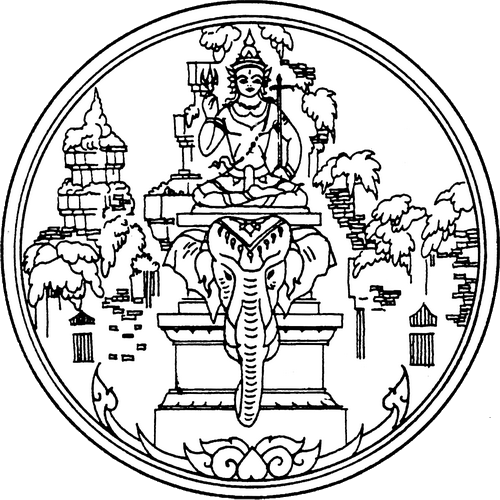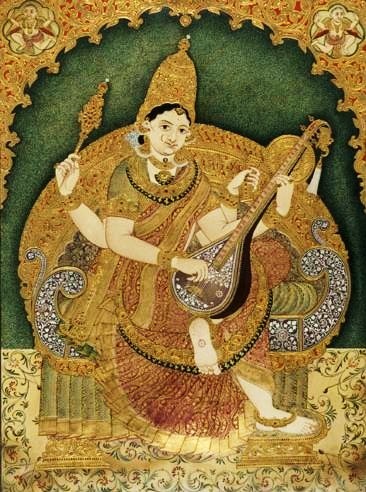|
Jnanpith Award-winning Works
The Jnanpith Award is the oldest and the highest Indian literary award presented annually by the Bharatiya Jnanpith to an author for their "outstanding contribution towards literature". Instituted in 1961, the award is bestowed only on Indian writers writing in Indian languages included in the Eighth Schedule of the Constitution of India and English, with no posthumous conferral. From 1965 till 1981, the award was given to the authors for their "most outstanding work" and consisted of a citation plaque, a cash prize and a bronze replica of Saraswati, the Hindu goddess of knowledge and wisdom. The first recipient of the award was the Malayalam writer G. Sankara Kurup who received the award in 1965 for his collection of poems, Odakkuzhal (Poetry), Odakkuzhal (''The Bamboo Flute''), published in 1950. The rules were revised in subsequent years to consider only works published during the preceding twenty years, excluding the year for which the award was to be given and the cash priz ... [...More Info...] [...Related Items...] OR: [Wikipedia] [Google] [Baidu] |
Bharatiya Jnanpith
Bharatiya Jnanpith a literary and research organization, based in New Delhi, India, was founded on February 18, 1944Encyclopaedia of Indian literature vol. 1, p. 298 1987, Sahitya Akademi, by Sahu Shanti Prasad Jain of the Sahu Jain family and his wife Rama Jain to undertake systematic research and publication of Sanskrit, Prakrit, Pali and Apabhramsha texts and covering subjects like religion, philosophy, logic, ethics, grammar, astrology, poetics, etc.jnanpith.net , Bhartiya Jnanpith Official website Its research and publication programme started with the publication of the Dhavala texts. A Jain temple at Moodabidri in Karnataka, southern India, had stored for centuries its manuscript of palm-leaves. It was a 9th-century commentary in Prakrit and Sanskrit, of a 2nd-century CE work, Satkhandagama, in Prakrit on the Karma in Jainism, Jain doctrine of ... [...More Info...] [...Related Items...] OR: [Wikipedia] [Google] [Baidu] |
Odia Language
Odia (;"Odia" ''Lexico''. , ISO 15919, ISO: , ; formerly rendered as Oriya) is a classical languages of India, classical Indo-Aryan languages, Indo-Aryan language spoken in the Indian state of Odisha. It is the Languages with official status in India, official language in Odisha (formerly rendered as Orissa), where native speakers make up 82% of the population, and it is also spoken in parts of West Bengal, Jharkhand, Andhra Pradesh and Chhattisgarh. Odia is one of the Languages with official status in India, official languages of India; it is the official language of Odisha and the second official language of Jharkhand. The Odia language has various dialects varieties, including the Baleswari Odia (Northern dialect), Kataki, Dhenkanalia, Anugulia(central dialect), Ganjami O ... [...More Info...] [...Related Items...] OR: [Wikipedia] [Google] [Baidu] |
Sahu Shanti Prasad Jain
Sahu Shanti Prasad Jain was an Indian industrialist and philanthropist. He was the son-in-law of Ramkrishna Dalmia and former chairman of Bennett, Coleman. His family, Sahu Jains, owns the Times of India newspaper group. Early age and education He was born in the Sahu Jain Family at Najibabad in what is now Uttar Pradesh on 22 May 1911. Career He founded Bharatiya Jnanpith on 18 February 1944 at the suggestion of many scholars who had gathered at Varanasi for the All India Oriental Conference. Since 1965 Bharatiya Jnanpith has been awarding an annual literary award, the Jnanpith Award, for the best creative Indian literary work of a specified period. Bennett Coleman In 1947, Ramkrishna Dalmia engineered the acquisition of Bennett, Coleman by transferring moneys from a bank and an insurance company of which he was the Chairman. In 1955, this came to the attention of the socialist parliamentarian Feroze Gandhi who was part of the ruling Congress party headed by his estra ... [...More Info...] [...Related Items...] OR: [Wikipedia] [Google] [Baidu] |
Prothom Protishruti
''Prothom Protishruti'' (; ), also spelled Pratham Pratishruti, is a 1964 Bengali novel by Ashapurna Devi. Considered to be Devi's magnum opus, it tells a story of Satyabati who was given away in marriage at the age of eight to maintain the social norms, and was kept under strict surveillance of brahmanical regulations. The novel narrates Satyabati's struggle to fight against family control, mental violence of the polygamy system, and social prejudices in patriarchal society. It won Rabindra Puraskar in 1965 and Jnanpith Award in 1976. Background The title ''Prothom Protishruti'' (First Promise) refers to the promise Satyabati, the protagonist, has made to educate her daughter Subarna and in which she failed. Critic Madhuri Chatterjee noted that the title also can be interpreted in positive terms — it could be the promise with which Satyabati leaves her household to demand answers regarding the position of women. Characters Spanning 48 chapters, the novel has about 50 ch ... [...More Info...] [...Related Items...] OR: [Wikipedia] [Google] [Baidu] |
Ashapoorna Devi
Ashapurna Devi (8 January 1909 – 12 July 1995), also Ashapoorna Devi or Ashapurna Debi, was a prominent Indian novelist and poet in Bengali. In 1976, she was awarded the Jnanpith Award and Padma Shri by the Government of India, D.Litt. by the Universities of Jabalpur, Rabindra Bharati, Burdwan and Jadavpur. Vishwa Bharati University honoured her with Deshikottam in 1989. For her contribution as a novelist and short story writer, the Sahitya Akademi conferred its highest honour, the Sahitya Akademi Fellowship, in 1994. Biography Ashapurna Devi was born in a Baidya family on 8 January 1909 in North Calcutta. Her birth name was Asha Purna Devi (Gupta). Her early childhood was spent in a traditional and extremely conservative family. Female children of the house were not allowed to go to school. Private tutors were employed only for the boys. It is said that as a baby Ashapurna used to listen to the readings of her brothers sitting opposite to them and that was how she ... [...More Info...] [...Related Items...] OR: [Wikipedia] [Google] [Baidu] |
Odakkuzhal (Poetry)
''Odakkuzhal'' is a collection of poems written by G. Sankara Kurup in Malayalam. It was published by Mathrubhumi in 1950. It won the first prestigious Jnanpith Award The Jnanpith Award is the oldest and the highest Indian literary award presented annually by the Bharatiya Jnanpith to an author for their "outstanding contribution towards literature". Instituted in 1961, the award is bestowed only on Indian ... in 1965. The book consists of 60 symbolist lyrics. References Malayalam-language literature {{India-literature-stub ... [...More Info...] [...Related Items...] OR: [Wikipedia] [Google] [Baidu] |
Hindu Goddess
Hindu deities are the gods and goddesses in Hinduism. Deities in Hinduism are as diverse as its traditions, and a Hindu can choose to be polytheistic, pantheistic, monotheistic, monistic, even agnostic, atheistic, or humanist. Julius J. Lipner (2009), Hindus: Their Religious Beliefs and Practices, 2nd edition, Routledge, , p. 8; Quote: "(...) one need not be religious in the minimal sense described to be accepted as a Hindu by Hindus, or describe oneself perfectly validly as Hindu. One may be polytheistic or monotheistic, monistic or pantheistic, even an agnostic, humanist or atheist, and still be considered a Hindu." The terms and epithets for deities within the diverse traditions of Hinduism vary, and include Deva, Devi, Ishvara, Ishvari, Bhagavān and Bhagavati. The deities of Hinduism have evolved from the Vedic era (2nd millennium BCE) through the medieval era (1st millennium CE), regionally within Nepal, Pakistan, India and in Southeast Asia, and across Hinduism's d ... [...More Info...] [...Related Items...] OR: [Wikipedia] [Google] [Baidu] |
Saraswati
Saraswati (, ), also spelled as Sarasvati, is one of the principal Devi, goddesses in Hinduism, revered as the goddess of knowledge, education, learning, arts, speech, poetry, music, purification, language and culture. Together with the goddesses Lakshmi and Parvati, she forms the trinity of chief goddesses, known as the Tridevi. Sarasvati is a pan-Indian deity, venerated not only in Hinduism but also in Jainism and Buddhism.Ludvik (2007), pp. 1, 11. She is one of the prominent goddesses in the Historical Vedic religion, Vedic tradition (1500 to 500 BCE) who retains her significance in later Hinduism. In the Vedas, her characteristics and attributes are closely connected with the Sarasvati River, making her one of the earliest examples of a Rivers in Hinduism, river goddess in Indian tradition. As a deity associated with a river, Sarasvati is revered for her dual abilities to purify and to nurture fertility. In later Vedic literature, particularly the Brahmanas, Sarasvati is i ... [...More Info...] [...Related Items...] OR: [Wikipedia] [Google] [Baidu] |
Urdu
Urdu (; , , ) is an Indo-Aryan languages, Indo-Aryan language spoken chiefly in South Asia. It is the Languages of Pakistan, national language and ''lingua franca'' of Pakistan. In India, it is an Eighth Schedule to the Constitution of India, Eighth Schedule language, the status and cultural heritage of which are recognised by the Constitution of India. Quote: "The Eighth Schedule recognizes India's national languages as including the major regional languages as well as others, such as Sanskrit and Urdu, which contribute to India's cultural heritage. ... The original list of fourteen languages in the Eighth Schedule at the time of the adoption of the Constitution in 1949 has now grown to twenty-two." Quote: "As Mahapatra says: "It is generally believed that the significance for the Eighth Schedule lies in providing a list of languages from which Hindi is directed to draw the appropriate forms, style and expressions for its enrichment" ... Being recognized in the Constitution, ... [...More Info...] [...Related Items...] OR: [Wikipedia] [Google] [Baidu] |
Telugu Language
Telugu (; , ) is a Dravidian languages, Dravidian language native to the Indian states of Andhra Pradesh and Telangana, where it is also the official language. Spoken by about 96 million people (2022), Telugu is the most widely spoken member of the Dravidian language family, and one of the twenty-two Languages with legal status in India, scheduled languages of the Republic of India. It is one of the few languages that has primary official status in more than one States and union territories of India, Indian state, alongside Hindi and Bengali language, Bengali. Telugu is one of the languages designated as a Classical Languages of India, classical language by the Government of India. It is the 14th most spoken native language in the world.Statistics in Modern Standard Telugu is based on the dialect of erstwhile Krishna, Guntur, East Godavari and ... [...More Info...] [...Related Items...] OR: [Wikipedia] [Google] [Baidu] |
Tamil Language
Tamil (, , , also written as ''Tamizhil'' according to linguistic pronunciation) is a Dravidian language natively spoken by the Tamil people of South Asia. It is one of the longest-surviving classical languages in the world,. "Tamil is one of the two longest-surviving classical languages in India" (p. 7). attested since 300 BC, 300 BCE.: "...the most acceptable periodisation which has so far been suggested for the development of Tamil writing seems to me to be that of A Chidambaranatha Chettiar (1907–1967): 1. Sangam Literature – 200BC to AD 200; 2. Post Sangam literature – AD 200 – AD 600; 3. Early Medieval literature – AD 600 to AD 1200; 4. Later Medieval literature – AD 1200 to AD 1800; 5. Pre-Modern literature – AD 1800 to 1900" at p. 610 Tamil was the lingua franca for early maritime traders in South India, with Tamil inscriptions found outside of the Indian subcontinent, such as Indonesia, Thailand, and Egypt. The language has a well-documented history wit ... [...More Info...] [...Related Items...] OR: [Wikipedia] [Google] [Baidu] |
Sindhi Language
Sindhi ( ; or , ) is an Indo-Aryan language spoken by more than 30 million people in the Pakistani province of Sindh, where it has official status, as well as by 1.7 million people in India, where it is a Scheduled languages of India, scheduled language without state-level official status. Sindhi is primarily written in the Perso-Arabic script in Pakistan, while in India, both the Perso-Arabic script and Devanagari are used. Sindhi is a Northwestern Indo-Aryan languages, Northwestern Indo-Aryan language, and thus related to, but not mutually intelligible with, Saraiki language, Saraiki and Punjabi language, Punjabi. Sindhi has several regional dialects. The earliest written evidence of modern Sindhi as a language can be found in a translation of the Qur’an into Sindhi dating back to 883 AD. Sindhi was one of the first Indo-Aryan languages to encounter influence from Persian language, Persian and Arabic following the Umayyad campaigns in India, Umayyad conquest in 712 AD. A ... [...More Info...] [...Related Items...] OR: [Wikipedia] [Google] [Baidu] |






